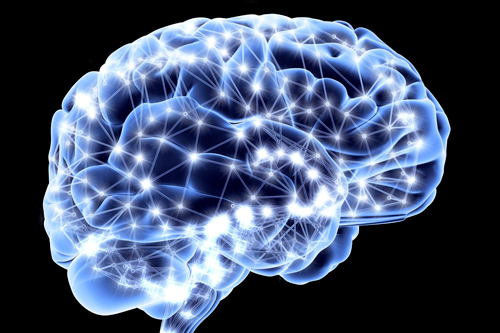 Dr. Rachel Yehuda: Exclusive interview
Dr. Rachel Yehuda: Exclusive interview
It’s a scientific fact: experiences change markers on the DNA of traumatized people, and these markers can be passed to future generations—making them more likely to deal badly with stress. However, the good news is that since we know that this adaptive evolutionary process happens, we can consciously choose to use it in the opposite direction—creating a legacy of positive conscious change.

I am sitting in the cluttered office of Dr. Rachel Yehuda, the very vibrant and very busy Professor of Psychiatry and Neuroscience, Director of the Traumatic Stress Studies Division at the Mount Sinai School of Medicine, and Director of Mental Health at the James J. Peters Veterans Affairs Medical Center in the Bronx, New York. I am here because of the results of two of her studies on the transgenerational effects of trauma on the DNA of the offspring of Holocaust survivors and mothers who were pregnant and traumatized by the 9/11 terrorist attacks.
But I quickly learn that these studies are but stepping stones in a research journey that has been going on for decades. And it is the accumulation of stepping stones that has led Yehuda and her team to know how to interpret the epigenetics (the study of the molecular mechanisms by which environment controls gene activity) of the Holocaust and 9/11 trauma legacy studies.
“We’ve been saying versions of [the study results] for a really long time,” says Yehuda. But the irrefutable finding of a chemical mark on a gene that is passed from parent to child has given validation to something many people sense.
“There’s no particular reason to believe that the findings would be limited to the populations that we’ve studied,” explains Yehuda. “It’s hard to imagine that if there were such a thing as transmitted effects of trauma or reactions of the offspring to parental trauma that this would only occur for some traumas and not others. So we’ve got to imagine that this is going to somehow be a universal phenomenon.” However she emphasizes the need for more scientific studies in different groups of people.
“I think that people are resonating with the findings,” she continues, “because they see it for what it probably is which is something more universal that explains a lot of things that have really not had the proper words by way of explanation. People do feel that somehow the experiences from their parents and generations past are meaningful in some way. Epigenetics gives us a language, a vocabulary to begin to talk about these kinds of phenomena.
“I think that people who feel traumatized know that something isn’t what it should be, but sometimes they have difficulty connecting how they’re feeling to an event. Or perhaps they feel that they’re exaggerating or have an exaggerated response to an event. And what concepts like this—concepts of sensitization or things like that—have going for them is that they help us understand why our response to the environment isn’t just a response to what’s happening to us but may be more of a collective response to how we’re looking at things based on events that might have occurred in prior generations. So maybe it’s like an overwriting on the genes in some way.”
So how can we use this information?
Yehuda’s eyes twinkle. “The idea that we are able to make changes in the way our genes function based on our experiences is a profoundly empowering idea. It is, for me, the very definition of resilience. Resilience in its optimal definition is really the ability to come out of a traumatic or a stressful experience changed in a positive manner. And if we are capable of responding to the environment through change, then we have a good set of tools to be able to help us change positively as well as negatively. The more we study how the environment changes us, the more we will learn that not all of the changes that we experience from trauma are negative changes, that some of the changes may actually be there to help us better deal with the events that befall us. So I think that really transforms us from being victims to survivors.”
A positive use for trauma symptoms. What a concept. I ask for an example.
“The simplest idea is that if something bad has happened to you, you’re in a position to know best how to help somebody else cope with that very same event. And we have a lot of people who go into the mental help profession, for example, because they’ve experienced a very traumatic set of situations or a situation and they’re extremely motivated to buffer the consequences of those kinds of events for other people or teach other people how to adapt or transform them.”
Yehuda wants to harness the benefits of our ability to adapt and change. “That’s what I’m trying to emphasize and what I’m trying to see in this work,” she says. “Because the flip side would be for people to feel really stuck in legacy trauma. It’s hard enough to deal with one’s own problems and now I have to deal with generations of other people’s problems?—that really would seem quite a burden.”
Our interview is cut short by a shooting incident where Yehuda’s presence is required. We are surrounded by traumatized veterans. I have to ask: “Are you an optimist or a pessimist? What’s your prognosis for our future?”
Yehuda looks thoughtful. “I think I’m both. We’re all both. I think that to see things one way at all times is not adaptive. So to be pessimistic when it’s warranted is probably a good thing and to be optimistic when it’s warranted is probably a good thing too. I think I’m probably more optimistic because optimism is more empowering. But sometimes pessimism can provide the container that we need to not be disappointed when the things we think we can do cannot be done. So I wouldn’t rule it out as a negative way of looking at the world. I just think that ideally we can harness both optimism and pessimism and use them when we need them.”
“Do you have a message for RewireMe readers who are interested in personal transformation?”
“The message that we can change the way our genes function is really good news. It means that we can choose in large measure to engage in the kind of activities that will promote good health and good functioning. And whereas we cannot totally control all the things that happen to us, we can write the script for the future in many important ways, and that should be empowering.”
“I’m not denying the paralyzing effects of traumatic stress, because they are very real. But eventually people who experience trauma do start to see little ways forward, and eventually those little paths forward can really be a guiding light toward a positive transformation. The worst thing that trauma does is it locks you in the past and makes your life small and makes you not want to change, because change can be scary. When you get over that hurdle and think that change can also help me heal from the effects of trauma, then that can end up being helpful and empowering.”
For further discussion of trauma and its treatment, see my article about radical change through radical methods.
Post Disclaimer
This content is for informational purposes only and does not constitute medical advice. Please consult a healthcare professional for any medical concerns.


